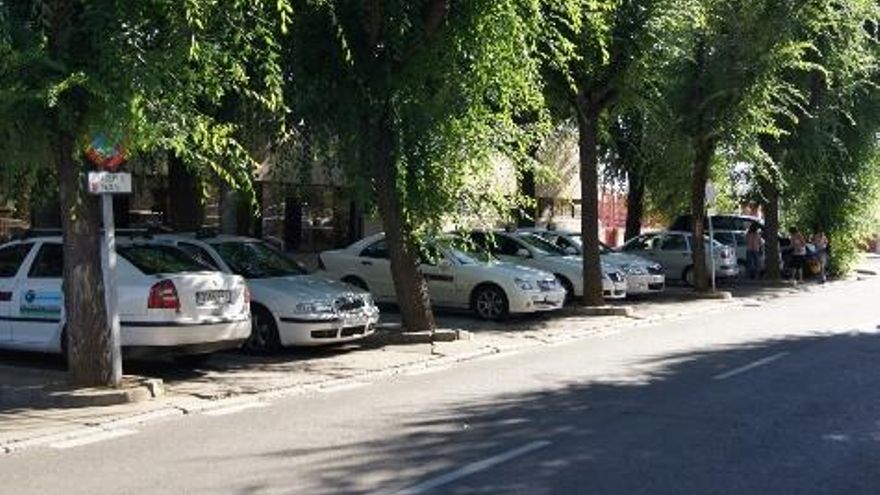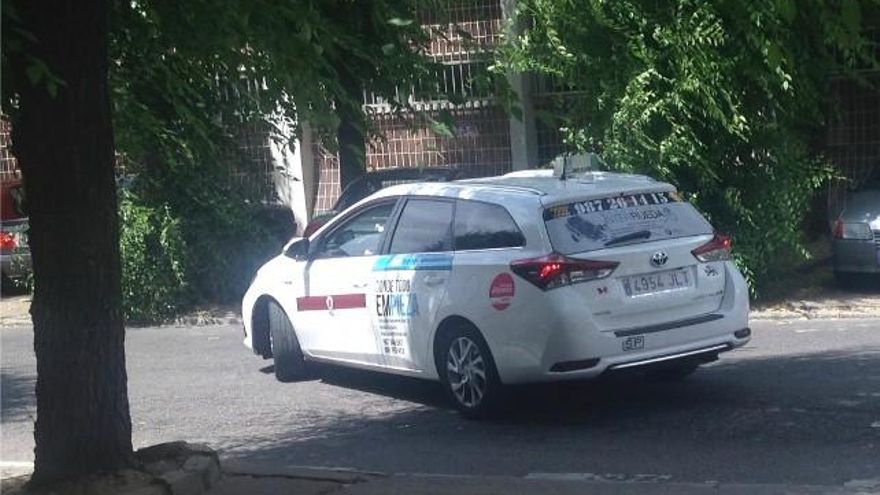Ingresado en León un hombre herido tras caer por el hueco del ascensor de un edificio en Benavente
Uber in León: inevitable?

Uber has become the preferred means of transport of millions of people around the world, but Spain, due to its laws pertaining to taxis, has not had the opportunity to experience in full the app that has forever changed the world of transportation. Although it is true that Uber is implementing 'UberX' in Madrid, for several reasons it appears unlikely that Uber will be used here in León any time soon.
It is a widely held sentiment that Uber only functions well in big cities with millions of people, but this belief can be proven false easily. Uber has a significant presence in many small towns, including some as small as Williamstown, Massachusetts, a small rural town where only a few thousand people and a small college can be found. Therefore, it is not the size of León's population that suggests that Uber could not succeed here.
However, the size of the city is worth contemplating. It is true that León's taxis and public transportation offer quicker ways to go to places a bit further way, but it is also important to remember that, firstly, the city is pretty small in area, and, secondly, it is full of active people of all ages who prefer to walk when they have the option. Thus, if Uber wants to succeed here, the company will first have to convince us that we should travel in cars more often.
But there exists another obstacle for Uber in Spain that, without doubt, is the most significant: the restrictions of Spain, especially outside of Madrid, related to the possible number of taxi licenses. During an interview with RTVE's Inma Gómez-Lobo March 30, Uber's General Manager of Southern Europe, Carlos Lloret, spoke about this problem.

“Spain probably has the most restrictive laws out of all of Europe, and Europe is a continent that traditionally has very restrictive laws”, Lloret says. “Therefore, we are talking about a market that is very complicated. And why is it complicated? We understand that it is obviously important that there is a series of verifications to see who is driving, with which car, and which insurance there is, and every market requires that a driver meet certain criteria, as in the case of Spain”.
“España tiene probablemente la ley más restrictiva de Europa, y Europa es un continente que tradicionalmente tiene leyes muy restrictivas, por lo tanto hablamos de un mercado muy complicado,” dice. “Y ¿por qué es complicado? Entendemos que es evidentemente importante que hay una serie de verificaciones para ver quien está conduciendo, con que coche conduce, que seguro existe, y todos los mercados exigen que para poder conducir cumplas una serie características como en el caso español”.
“España tiene probablemente la ley más restrictiva de Europa, y Europa es un continente que tradicionalmente tiene leyes muy restrictivas, por lo tanto hablamos de un mercado muy complicado,” dice. “Y ¿por qué es complicado? Entendemos que es evidentemente importante que hay una serie de verificaciones para ver quien está conduciendo, con que coche conduce, que seguro existe, y todos los mercados exigen que para poder conducir cumplas una serie características como en el caso español”.
“The main difference is that in Spain, even if you meet the criteria to receive a license, due to the regulations it is still possible that you will be denied a license, and they will tell you that there is insufficient demand. We have seen in other markets that this restriction does not exist. There is not a limit of the number of licenses”.
“La diferencia principal es que en España la regulación no permite que aunque cumplas estas características tener hoy una licencia, te la van a denegar diciendo que no hay suficiente demanda. Nosotros vemos en otros mercados esta restricción no existe, no hay limitación en número”.
“La diferencia principal es que en España la regulación no permite que aunque cumplas estas características tener hoy una licencia, te la van a denegar diciendo que no hay suficiente demanda. Nosotros vemos en otros mercados esta restricción no existe, no hay limitación en número”.
Despite the difficulties in Spain, Uber has begun to provide 'UberX' in Madrid, which has a higher proportion of taxis per person (more than 15.000 for almost six and a half million people) than the majority of Spanish cities. Unlike 'UberPop', which Uber initially implemented in Spain, 'UberX' only uses professional drivers. That is, every UberX driver in Madrid has a VTC license. As a result, the services that Uber now offers in Spain are in accordance with Spain's laws.

Taxi en servicio en la parada de la Estación de Autobuses.
However, due to Spanish regulations, for every one VTC license there must be 30 taxi licenses. Thus, when the number of taxi licenses is low, the number of VTC licenses will also be low. Because of this, we should not expect to see Uber in cities like León, where there are only 179 taxis licenses for more than 130.000 people, allowing only five or six VTC licenses.
During his interview with RTVE, Lloret implied that until the situation changes, Uber has no plans to launch in cities with low numbers of taxis. “We have begun in Madrid, which is already a big market, and we want to do very well in that market”, Lloret explains. “Obviously, we would like to launch in more cities...The big obstacle to launching in other cities will be without a doubt the number of licenses available”.
“Empezamos con Madrid, que ya es un gran mercado y queremos trabajar muy bien en el mercado de Madrid,” explica Lloret. “Evidentemente nos gustaría llegar a más ciudades...La gran barrera para poder llegar a otros ciudades será sin duda el número de licencias”.
“Empezamos con Madrid, que ya es un gran mercado y queremos trabajar muy bien en el mercado de Madrid,” explica Lloret. “Evidentemente nos gustaría llegar a más ciudades...La gran barrera para poder llegar a otros ciudades será sin duda el número de licencias”.
“In the case of Barcelona, in the case of Valencia and in other cities, the problem is that the number of licenses is very low, very low in relation to the market that could exist. It would be very complicated to offer the service that we want to in relation to the necessary waiting times and the prices. And if we cannot offer a service that we are proud of in some cities, we will not launch our app in those places”.
“En el caso de Barcelona, en el caso de Valencia y en otras ciudades, el problema es que el número de licencias es muy bajo, muy pocas en relación al mercado que podría existir. Sería muy complicado ofrecer un servicio o bien con la calidad adecuada de tiempo de espera o bien con los precios que queremos tener. Si no podemos dar un servicio del que estemos orgullosos, no lo lanzaremos”.
“En el caso de Barcelona, en el caso de Valencia y en otras ciudades, el problema es que el número de licencias es muy bajo, muy pocas en relación al mercado que podría existir. Sería muy complicado ofrecer un servicio o bien con la calidad adecuada de tiempo de espera o bien con los precios que queremos tener. Si no podemos dar un servicio del que estemos orgullosos, no lo lanzaremos”.
Ultimately, the situation can be boiled down to one question: Are Spanish authorities interested in changing the regulations of the sector? As of right now it is still unclear, and in reality it is the people of León and in general in Spain that should be angry, as they do not have the opportunity to experience Uber's efficient services and reasonable prices.
Si quieres, aquí puedes consultar este artículo en español.
















